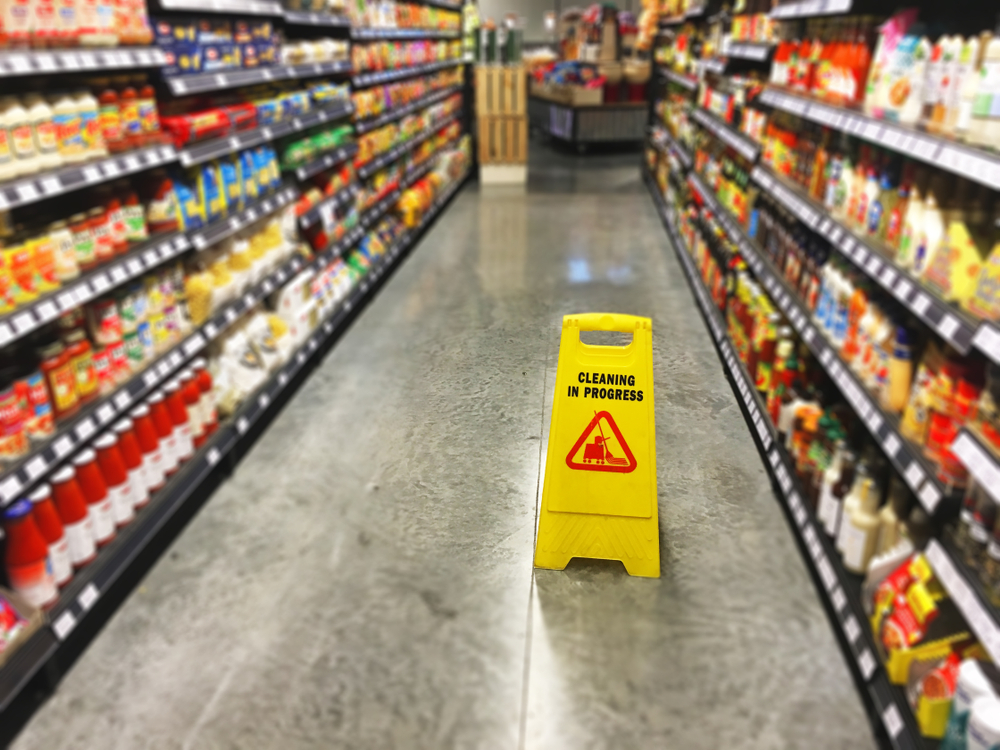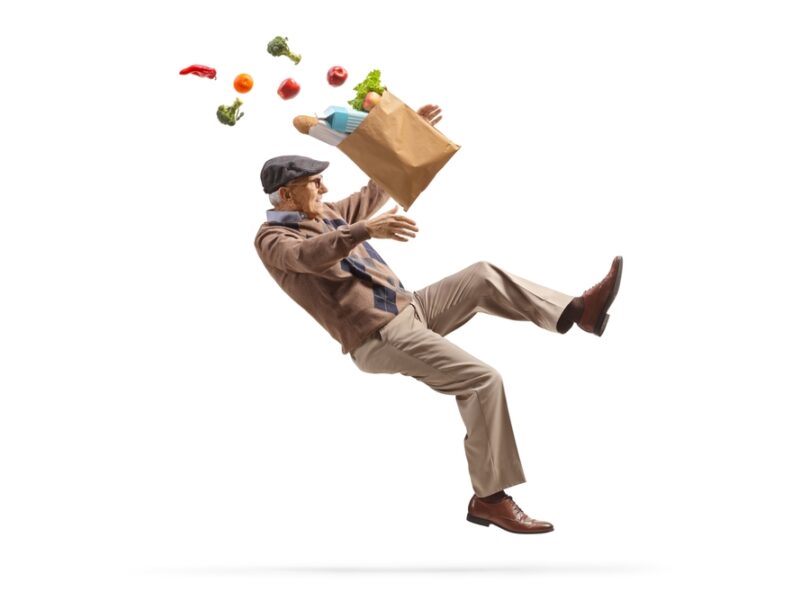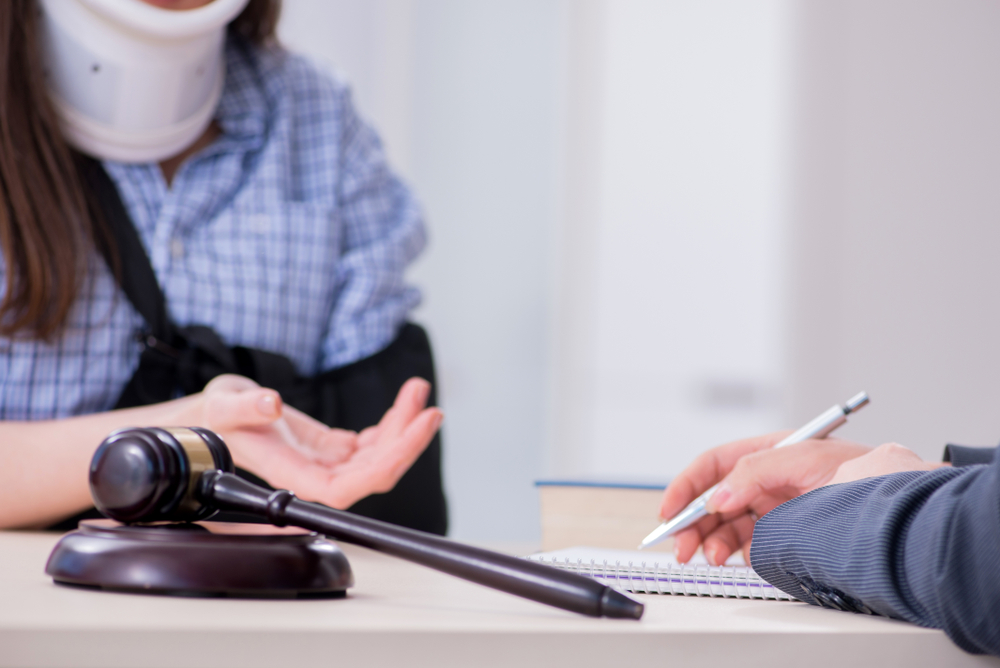Can I sue if I was injured in a grocery store slip and fall?
Grocery store accidents are a common source of slip and fall injuries, often leading to lawsuits. If a hazardous condition in a grocery store caused you to fall and get hurt, you are entitled to compensation. Even if you were partially to blame for the incident, you can still recover monetary damages. Holding the store responsible under California’s premises liability law often takes legal representation.
What are some common grocery store accidents?
Grocery store accidents can happen in a variety of ways. Not all involve slipping on something and falling. However, many do. Some of the most common are:
- stepping on a piece of produce and falling or straining a muscle,
- products falling from the shelves and onto patrons,
- slipping on water or sand near the store’s entrance,
- tripping on a protruding object on or near the floor,
- slipping in a puddle or on a slick surface,
- tripping on a partially folded carpet or floor mat,
- sliding on ice or falling in a pothole in the store’s parking lot,
- getting hurt by a defective shopping cart, and
- falling on objects or obstructions left in the aisle.
Contrary to popular belief, the injuries that these accidents can cause can be severe. Elderly customers are especially vulnerable. These accident victims are also more likely to suffer a serious injury.

What should I do after suffering a grocery store injury?
If you have fallen in a grocery store and gotten hurt, you should follow these 8 steps:
- do not say anything that could be interpreted as an admission of fault or that you are alright,
- get medical attention if you need it,
- take pictures of your injury,
- take pictures or videos of the spot where you fell, making sure to include whatever hazard made you fall down,
- if you slid on a substance, take a sample of it,
- get contact information from anyone who saw the accident,
- write down everything that you remember from the fall that may be relevant, like the shoes you were wearing, the weather outside, the time of day, and how badly it hurt, and
- call a personal injury lawyer.
You should also set aside and save the shoes and the clothes that you were wearing when you fell. They will likely be used as evidence during your injury claim.
What are some common grocery store slip and fall injuries?
There is a misperception that slip and fall injuries are minor. This could not be further from the truth. Some slip and fall accidents cause severe and even fatal injuries. This is especially true for elderly victims. Some of the most common injuries include:
- broken wrists, arms, or hands, often sustained from trying to break your fall,
- sprained or broken ankles or feet, often from the slip that led to the fall,
- other broken bones,
- head injuries, including traumatic brain injuries (TBIs) or concussions,
- whiplash or other soft tissue injuries,
- back and spinal cord injuries, including a broken tailbone,
- broken hip,
- broken pelvis, and
- lacerations or cuts.
Store managers and employees have a duty of care to keep you safe while you are in the store. If a dangerous condition causes one of these serious injuries and you need medical treatment, a premises liability attorney can hold the property owner liable for the store’s negligence.
What compensation can I recover in a personal injury case?
If you slip and fall in a grocery store, you deserve financial compensation for all of the losses that stemmed from the incident. This centers on your medical bills, including medical expenses that you are likely to accrue after filing your injury claim. However, it is not confined to compensation for your medical care. It also includes your physical pain and suffering, as well as any professional losses caused by the accident.
What if I was partially to blame for the slip and fall accident?
Even if you were partially to blame for the fall, you can still recover compensation. However, the amount you receive might get reduced based on your percentage of fault.
Many slip and fall cases are shared fault incidents. While the grocery store could have taken better care to keep you safe, you may have contributed to the accident by:
- being distracted,
- wearing shoes or clothing that got caught on something or contributed to the trip,
- not looking where you were stepping, or
- ignoring a wet floor sign.
In these cases, you may have been partially responsible for the accident and your injuries.
In California, these shared fault accidents are resolved with the doctrine of pure comparative negligence.1 Under this rule of personal injury law, a jury will assign a percentage of fault to all of the parties in the lawsuit. Any financial award that the jury gives to the victim is then reduced by that percentage of fault.
For example: Cynthia slips in a puddle of water that is leaking from the grocery store’s freezer. She falls and suffers a serious back injury. At trial, the jury finds that Cynthia’s losses from the accident are $100,000. However, because Cynthia probably should have noticed the hazard on the floor, the jury finds her 15 percent responsible. Cynthia’s award will be reduced from $100,000 down to $85,000.
In California, your award gets reduced by your percentage of fault, even if you are found to be primarily responsible for the accident. In many other states, this is not the case.
While comparative negligence only applies during the trial, it still impacts every stage of your personal injury claim. If there are signs that you were partially to blame for the slip and fall, the grocery store’s settlement offers will be lower than they would be, otherwise.
How can a personal injury lawyer help me?
A California slip and fall lawyer can help you by maximizing the settlement offers that you receive and, if they are insufficient, by filing a personal injury lawsuit on your behalf.
After getting hurt in a grocery store, an insurance adjuster for the store’s insurance company will conduct an investigation. If there are signs that the store was responsible, the store’s legal team will approach with an initial settlement offer. This offer is designed to seem enticing. However, it drastically underpays you. It aims to end the case with as small of a payout as possible.
By establishing an attorney-client relationship with a personal injury attorney from a reputable law firm, you can get the legal advice that you need in order to understand your rights. This includes a good idea of the financial compensation that you are entitled to receive. That knowledge is essential for making an informed decision over whether to accept a settlement offer or negotiate for a better one.
If settlement negotiations do not produce a fair settlement offer, your accident lawyer can file a lawsuit against the grocery store. This is a formal demand for compensation for the negligence of the store owners or store employees that caused your injuries. The negotiation process will continue after the lawsuit has been filed. If no settlement is reached before the trial date, though, the case will go to trial. Your accident attorney will present your best case for compensation, putting it up to the jury to decide how much your case is worth.
If the grocery store accident proved to be a fatal one, the lawyer would represent the victim’s loved ones by filing a wrongful death claim on their behalf.


